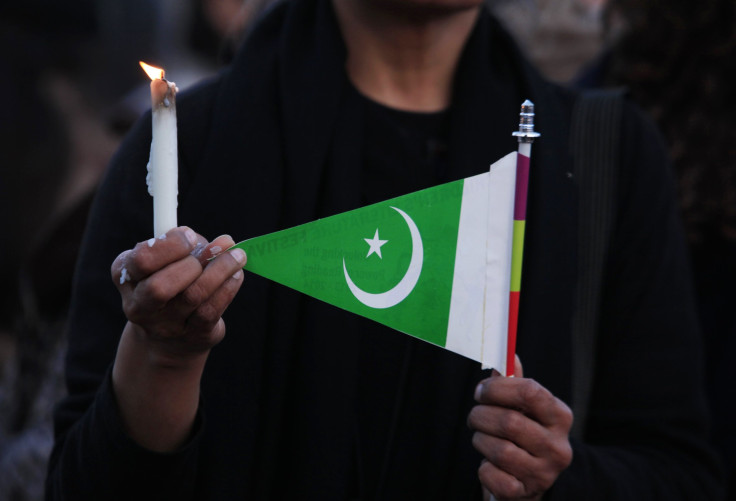Pakistan's Terrorism Crackdown: Hafiz Saeed Under House Arrest, MQM Leader Saleem Shahzad Produced In Anti-Terror Court

Although Pakistan was not included among the seven countries whose citizens were barred from entering the U.S. by President Donald Trump's executive order on immigration, recent reports said a group of South Asia experts in U.S. have recommended to the Trump administration it should take strict action against Pakistan if it does not stop the use of terrorism in Afghanistan and India soon.
It is not known whether that advice is being followed or not, and if Trump has issued some sort of a warning to Pakistan, but the Asian country seems to be making an effort to cracking down on the various terrorists and terror networks that have their base in the country.
Pakistani citizen Hafiz Saeed, responsible for the 2008 terror attacks in Mumbai, India — which killed over 160 people, including six U.S. citizens — and other violent acts in India was put under house arrest by Pakistani on Jan. 30.
Saeed, the chief of Jamaat-ud-Dawa (JuD) who also has links with Lashkar-e-Taiba, had been long declared a terrorist by India, the U.S., the U.K., EU and Australia. However, the Pakistan Supreme Court said in the past it did not find enough evidence against him to press charges, thus leaving him free.
In a video message issued before his arrest in January (which makes clear he was aware of his impending arrest before it happened), Saeed blamed the growing friendship between Indian Prime Minister Narendra Modi and Trump for the latest action by Pakistan.
Saeed is believed to have been a part of several other terrorist attacks and plans. He also tried to rebrand JuD, which has been blacklisted by the U.S. since 2014, as a relief agency in Pakistan.
Following Saeed's arrest, Saleem Shahzad, leader of the Muttahida Qaumi Movement, was arrested soon after he landed in Karachi from Dubai on Monday after a 24-year long self-imposed exile. The leader of the MQM political party was produced before an anti-terrorism court Tuesday, where he was accused of aiding terrorists.
"Saleem Shahzad has been arrested in connection with his nomination in the Dr. Asim Hussain terror facilitation case," said a Karachi police spokesperson. Dr. Hussain was arrested August 2015 in a case related to sheltering and treatment of criminals at his private health facilities.
Shahzad will also be tried for various other cases registered against him from the 1990s. "He is also involved in at least 20 other criminal cases. The cases are registered against him, particularly in Malir and Central districts of Karachi," Rao Anwar, Senior Superintendent of Police, said.
With these arrests, Pakistan seems to be aimed at improving its negative international image of being a terrorist haven.
On Nov. 30 last year, then President-elect Trump and Pakistani Prime Minister Nawaz Sharif spoke over the phone and Trump's office issues a statement saying that the two sides "had a productive conversation about how the United States and Pakistan will have a strong working relationship in the future."
Sharif's office, however, put out a statement at the same time which said Trump told Sharif: "You are a terrific guy. You are doing amazing work which is visible in every way. I am looking forward to see you soon. As I am talking to you, Prime Minister, I feel I am talking to a person I have known for long."
Trump's office didn't respond to the claims by the Pakistani leader's office. But considering Trump has been a vocal critic of Pakistan in the past, the claims made by Sharif seemed contradictory.
© Copyright IBTimes 2024. All rights reserved.






















